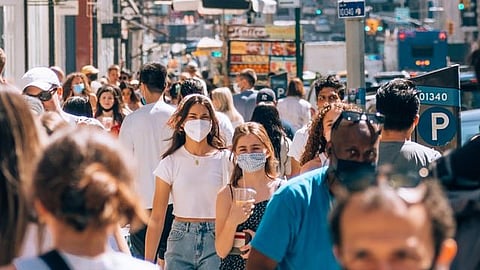The researchers found that adults have stable immune memory and tend to catch CCCs only about every eight years. "The immune response is remarkably stable and durable, over time," says LJI Instructor Ricardo Da Silva Antunes, Ph.D., who co-led the study with Sette.
SARS-CoV-2 is different from CCCs, but they have many structural similarities, and previous work at LJI suggests the immune system recognizes similarities between different coronaviruses.
For the new study, the LJI researchers also showed that antibodies and T cells from this group of healthy adults could cross-react with SARS-CoV-2. This cross-reactivity may actually help protect a person from severe COVID-19, and the finding reinforces the idea that the immune system sees CCCs and SARS-CoV-2 in a similar way.


